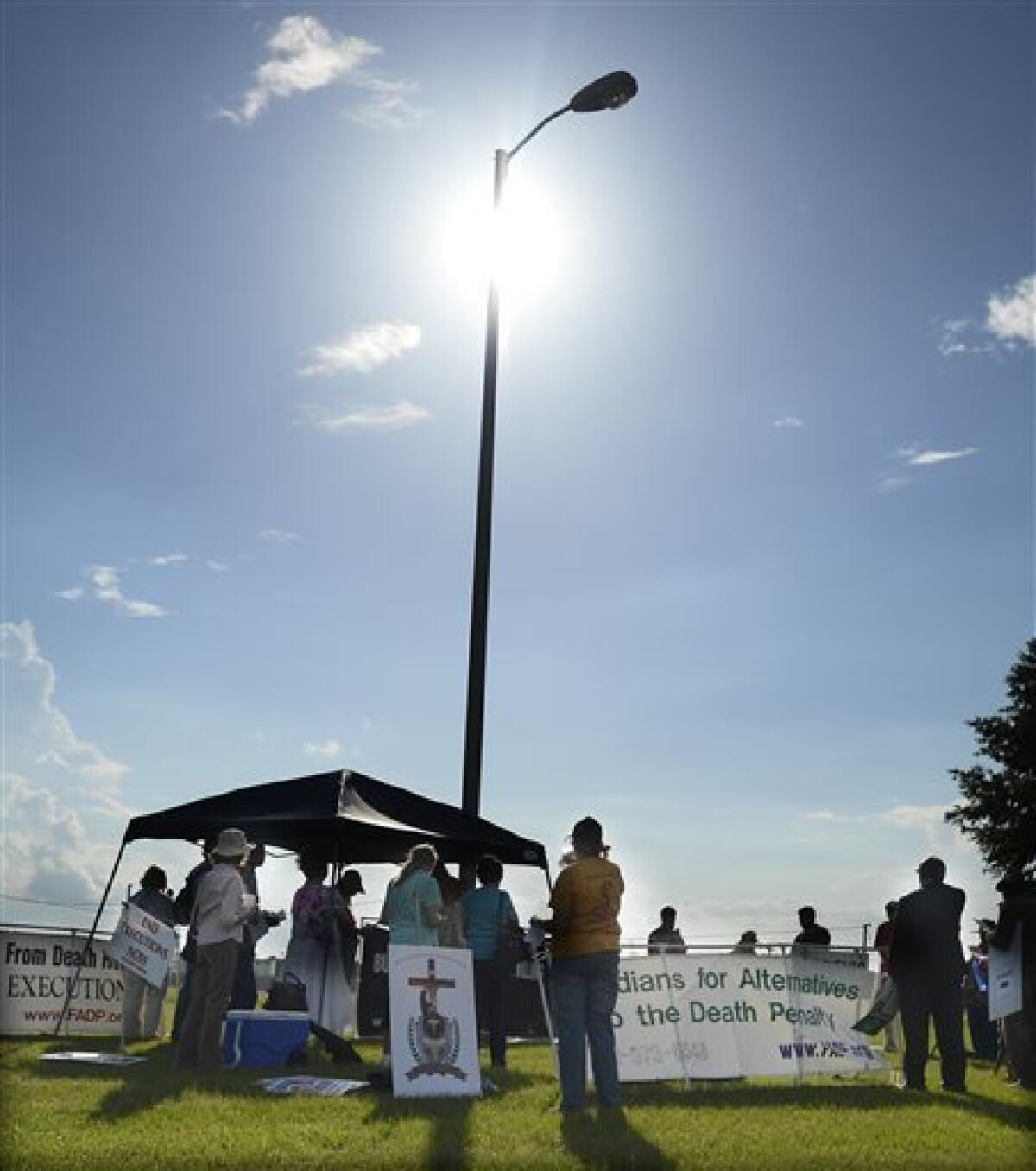Supreme Court strikes down Florida’s death penalty system

Protesters against the death penalty demonstrate in front of the Florida State Prison near Starke, Fla. Wednesday, June 18, 2014.
- Share via
reporting from Washington — The U.S. Supreme Court on Tuesday struck down Florida’s death penalty system on the grounds that judges, not juries, decide the key facts that determine whether a killer is condemned to die.
In an 8-1 ruling, the justices said this judge-driven system violates a defendant’s right to a jury trial.
The ruling will likely give new sentencing hearings to inmates who were recently sentenced to death in Florida, but the justices in the past have said such new rulings do not apply automatically to old cases.
Tuesday’s ruling relied on a 2002 decision that struck down Arizona’s judge-driven system for deciding death penalty cases. Despite that ruling in the case of Ring vs. Arizona, the Florida courts had continued to uphold death sentences there on the grounds that juries had recommended death as the proper verdict.
But on Tuesday, the justices decided Florida must move to a sentencing system that gives juries the final word. The ruling will mean a new sentencing hearing for Timothy Hurst, who was convicted of stabbing and killing a a co-worker at a Popeye’s restaurant in 1998.
Join the conversation on Facebook >>
He was tried twice, and the jury, though divided, recommended a death sentence, and the judge imposed one.
But Justice Sonia Sotomayor, speaking for the court, said Florida should have followed the 2002 decision by putting the full weight on the jury.
“The 6th Amendment protects a defendant’s right to an impartial jury,” she said. “This right required Florida to base Timothy Hurst’s death sentence on a jury verdict, not a judge’s fact-finding. Florida’s death sentencing scheme, which required the judge alone to find the existence of an aggravating circumstance, is therefore unconstitutional.”
Dissenting alone, Justice Samuel A. Alito said the justices had upheld Florida’s system in the past. “Under the Florida system, the jury plays a critically important role,” he said, by weighing the evidence and recommending whether the murderer should die.
On Twitter: @DavidGSavage
ALSO
Seattle activist plans mobile drug haven to encourage safe use
In his final State of the Union address, Obama seeks to stay relevant
Supreme Court appears skeptical of union fees -- a potentially major loss for labor groups
More to Read
Sign up for Essential California
The most important California stories and recommendations in your inbox every morning.
You may occasionally receive promotional content from the Los Angeles Times.











